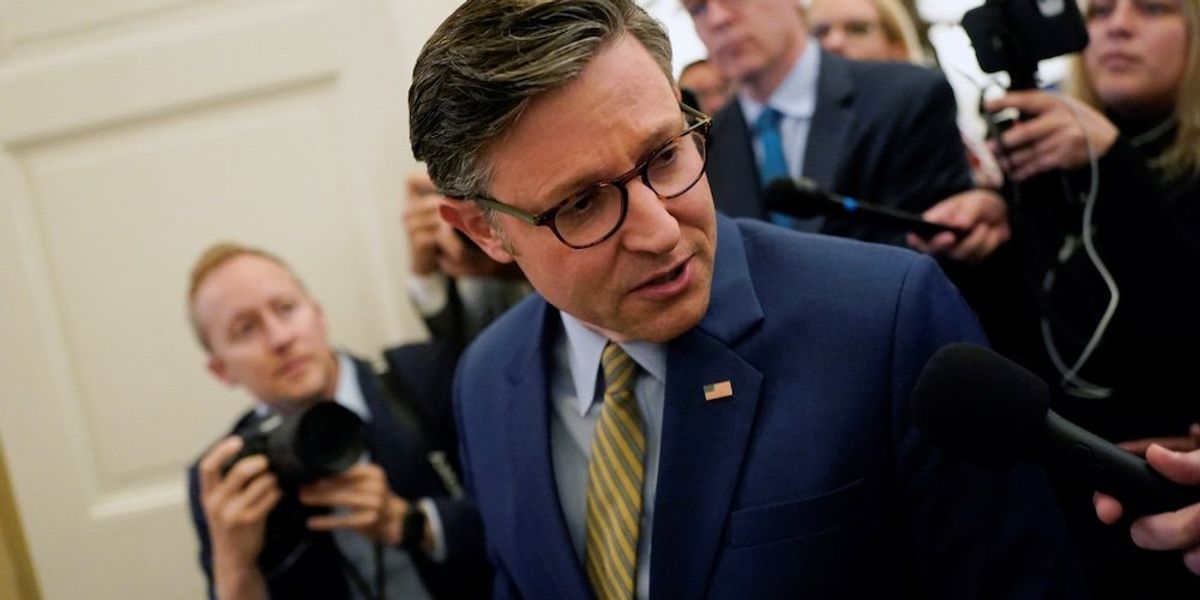Trump's 'Big Beautiful Bill' Faces Republican Backlash Over Fiscal Responsibility
Republican divisions deepen as Texas Representative Keith Self labels Trump's spending bill 'fiscally criminal.' The controversy centers on the Senate version's addition of over $1 trillion to the deficit, sparking significant opposition within the party.

U.S. House Speaker Mike Johnson speaking to reporters on Capitol Hill regarding the budget meeting at the White House
Growing Republican Opposition to Senate's Spending Bill
In a significant development that highlights deepening fissures within the Republican Party, Texas Representative Keith Self has publicly denounced former President Donald Trump's 'Big, Beautiful Bill' as 'fiscally criminal,' pointing to serious concerns about deficit spending.
'The House was clear: no new deficit spending. The Senate isn't listening -- their version adds over $1T to the deficit, completely ignoring the House framework. This isn't just reckless -- it's fiscally criminal.'
Analysis of the Fiscal Impact
The mounting tension between House Republicans and their Senate counterparts centers on the bill's projected impact on the federal deficit. According to the House Freedom Caucus, the Senate's version would add approximately $651 billion to the deficit before accounting for interest costs, which could potentially double the total impact.
Key Points of Contention
- Senate version exceeds agreed-upon House budget framework
- Additional deficit spending of over $1 trillion
- Interest costs could significantly amplify fiscal impact
- At least six moderate Republicans oppose current version
Legislative Timeline and Process
The Senate has initiated its vote-a-rama process, considering various amendments focused on Medicaid reductions and tax modifications. This crucial phase could determine the bill's ultimate fate in the House, with final Senate passage expected in the early hours of Tuesday.
The situation presents a critical test of fiscal governance and party unity, with implications for both domestic policy and economic stability. The growing resistance from both moderate Republicans and conservative factions suggests a challenging path forward for the legislation.
Wei-Ling Tan
Tech and economy specialist, covering innovation in Southeast Asia from Singapore for both English-language and regional media outlets.
